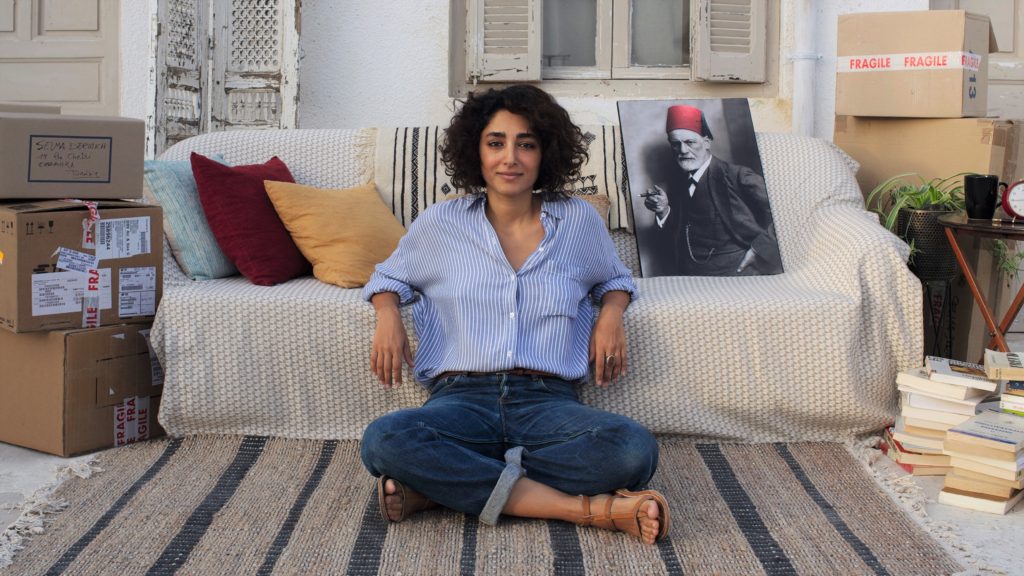Manele Labidi is a French-Tunisian writer-director. She has written and directed different projects for theater, radio, and television. Her first short film, “A Room of My Own,” is a tragicomic variation on Virginia Woolf’s famous essay. “Arab Blues” is Labidi’s first feature film.
“Arab Blues” will premiere at the 2019 Venice Film Festival on September 4.
W&H: Describe the film for us in your own words.
ML: “Arab Blues” explores the issue of individual and collective revolution and how these two are interdependent. No political revolution can entirely succeed without the revolution of intimacy. In the film, each character is going through their own intimate path.
W&H: What drew you to this story?
ML: The 2011 Tunisian Revolution and the impact it had on the Tunisians I ran into several months later. The country suddenly became “chatty” after decades of dictatorship. I understood that the revolution had had an impact on the population’s psyche and then I got the idea for the French-Tunisian psychotherapist, who would lend an ear with the distance of an outsider but also the motivation of someone who has come to contribute to the reconstruction of her home country.
W&H: What do you want people to think about when they are leaving the theater?
ML: I want them to think that Arab issues are not limited to terrorist attacks, and women being forced to wear the veil by horrible men. I want them to leave the theater with another perspective.
It’s about parents trying to raise their kids in the context of economic turmoil and political uncertainties; it’s about people fighting against addiction, questioning their gender, their femininity, their spirituality; it’s about teenagers who want to break free and reinvent their own rules. In a word, it’s about resilience.
These [characters’ experiences] are universal and I hope everyone can relate to them.
W&H: What was the biggest challenge in making the film?
ML: The biggest challenge was facilitating collaboration between the French technicians and the Tunisian technicians during filming, who each different working habits. I was right in the middle, as I am from both cultures. Sometimes I felt like a soccer referee but it eventually went very well.
W&H: How did you get your film funded? Share some insights into how you got the film made.
ML: The film was funded by a French distributor, Diaphana; by an international distributor, MK2; by ARTE Cinema, a French-German public TV channel; CANAL+, a pay TV channel; and French channel OCS. It was produced by Jean-Christophe Reymond of Kazak Productions.
W&H: What inspired you to become a filmmaker?
ML: I approached filmmaking by writing scripts. My writing was mainly visual and musical, and then I realized that filmmaking was a total art, which enables me to mix my passion for painting, photography, literature, and theater in my creative process.
W&H: What’s the best and worst advice you’ve received?
ML: Best advice: Forget the script during filming and get ready to be surprised by the film being made.
Worst advice: When I considered becoming a director, I was told, “You have no connections, no film school degree — think about another job.”
W&H: What advice do you have for other female directors?
ML: To consider themselves directors and not “female directors.”
W&H: Name your favorite woman-directed film and why.
ML: “Wanda” by Barbara Loden for its radicalness, and its subversive way of portraying an unlikable woman who unticks all the boxes expected by society.
W&H: What differences have you noticed in the industry since the #MeToo and #TimesUp movements launched?
ML: It was inevitable to witness such movements and there will be no step back. These movements are still messy and there are various challenges ahead for women [who don’t want] to be trapped in “female stories” or “female cinema bubbles.” The battle will be won once gender stops influencing film, financing, genre, or salary.







